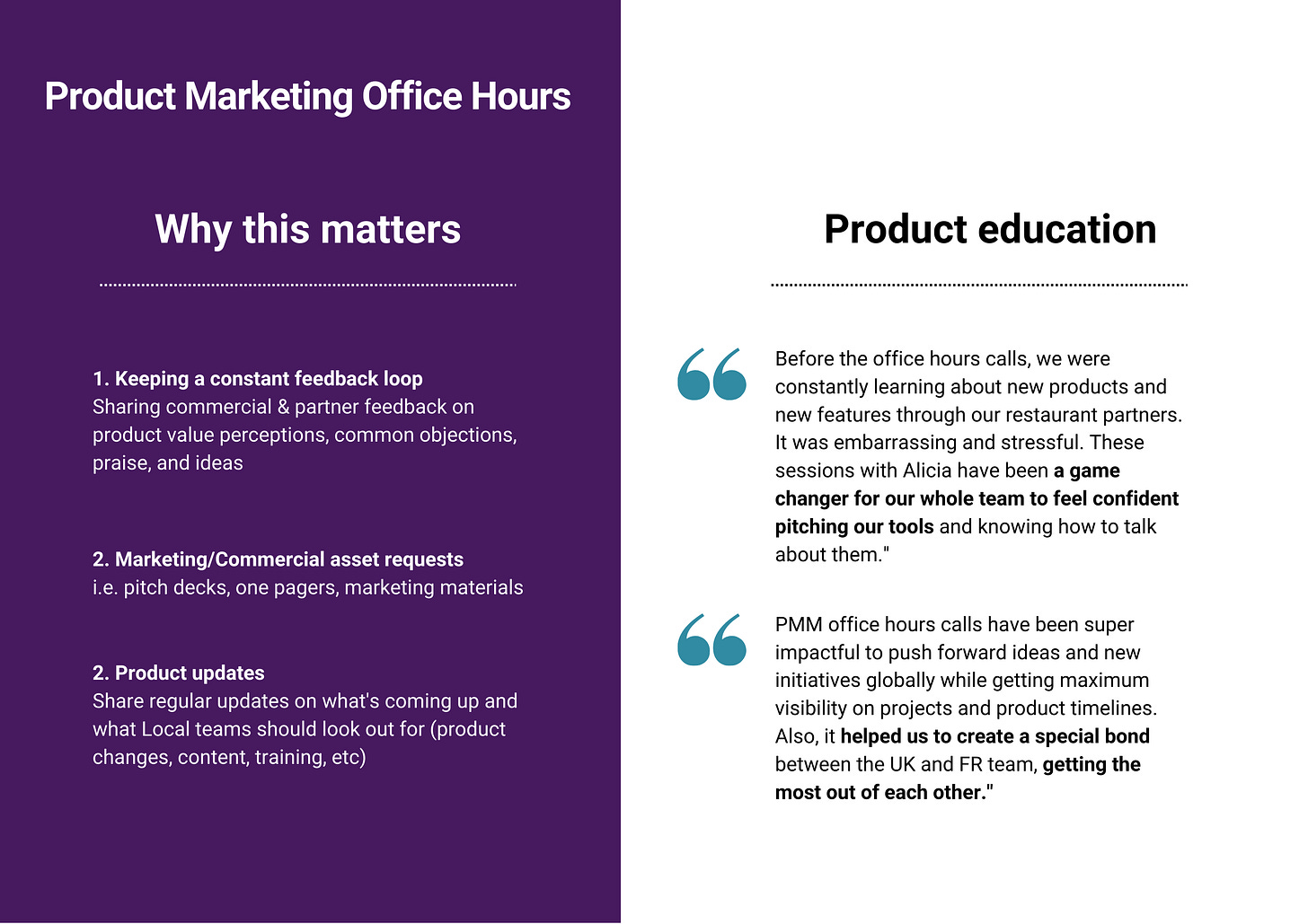Why you should be measuring business growth through a lens of customer empathy
Want to avoid running a mediocre business? Accelerate commercial impact by investing in the confidence of your customers and employees alike.
👋 Heya! It’s Alicia. Welcome to Customer Focus - a newsletter to help you accelerate growth by putting your customers at the heart of your business.
🎉 We just wrapped our fourth cohort of WTF is Go-To-Market. To date, 50+ people have given 5-star reviews to our short course designed for folks to get the skills, tools, and confidence to build a customer-focused go-to-market strategy. Now, we’re going self-paced and more affordable than ever. Check it out here.
Have you ever walked on eggshells?
I’m sure you’re familiar with a dull, suffocating pressure… like you’re walking a tightrope without a safety net.
Your body tenses as a fear of failure and reputational judgment looms. You doubt yourself — wondering if you're cut out for the job, and whether you'll measure up to the expectations of others (or yourself).
These constant feelings of unease sound terrible on paper. And yet, this is an innate, daily reality for thousands of people working in the tech industry. Over the past 12 years of building startups and scale-ups, I’ve learned one universal truth:
Everyone is f***ing scared.
Not everyone is aware that they’re f***ing scared.
From worrying about peers thinking you’re “good” or your startup getting thrown on the junk pile, we all have struggles, fears, and anxieties - it's part of life. But what's important is how we acknowledge them, and use that understanding to create radical customer empathy.
Marketers have a unique opportunity to connect with people on a deeper level (and bad marketers are the reason you raised an eyebrow just now). Recognizing that everyone is going through their own challenges allows us to build stronger relationships, and show customers and colleagues alike that we understand their pain.
But it's not just about being empathetic.
We also have a responsibility to help people feel confident. Let’s discuss why.
When our customers feel confident in their choices, they are more likely to trust us and stay loyal to our brand.
From educational content, to personalized recommendations, or exceptional customer service, we have the power to make a real difference in people's lives.
This work is 100% meaningless if not rooted in evidence of customer pain. What do I mean by evidence? I mean consistent examples of people citing this pain point through your customer feedback loops.
For example, at Lune, we know that creating climate impact is the starting line for our customers. There’s a huge pain point around, well, what do to next! That’s why I created a go-to-market resource center to help our customers bring climate impact into their customer experience. In doing so, we’re helping our B2B customers create stronger relationships with their customers by safely bringing climate into their brand messaging, sales story, and product education.
I love leading these ‘go-to-market’ calls with our new customers. I run through all the resources I have ready and waiting for them to use. They always, without fail, include the sentence “Wow, this is exactly what I wanted to ask about today.”
Understanding your customers’ pain, and pre-empt it with personalized solutions, is a great way to demonstrate empathy. But it also has business value, such as speeding up the onboarding process —and accelerating time to value.
When your peers feel listened to and valued, you begin to unlock the magic stuff.
If you’re cool with it, I’d like to challenge you:
Drop the front. Let down your guard, even for a day, for one conversation.
Everybody's hurting. The world is hurting right now — on global and individual levels.
People carry pain everywhere — in their minds, language, and actions. The more vulnerability we see in senior leaders, a glimpse into their fears and failures, the more employees will feel motivated to step off the tightrope and trust that you’ll help them fall safely.
Product marketing, for me, is a channel for helping people feel listened to and understood. And this principle has served me very well in advancing my career, too.
I talk a lot about how forging genuine relationships across my +300 stakeholders at Deliveroo was a secret ingredient to building trust, and earning the honest — often brutal — feedback that we needed to get our nascent ad platform to scale.
I built my own office hours program for all 12 local markets. This was an optional, 30-minute monthly session to share what’s coming from product and, more importantly, to listen to their feedback. The first few sessions, it felt like their Commercial Directors mandated their attendance. The calls were filled with crickets.
But we kept at it. I kept asking for feedback. Still crickets, or worse, the dismissive tone beneath a “looks good” comment. Attendance dropped to one or two, and some calls got cancelled.
So I decided to show them I wasn’t here to nark on them back to headquarters. I wanted to listen to their experience without deflection.
So, I let my guard down. I shared that I had recently conducted value interviews with restaurant partners. And based on their feedback, I felt worried that we had built the wrong thing. What did they think?
BOOM. Feedback flowed and attendance bloomed. Often, entire commercial teams joined to share product appreciations and concerns, new business case ideas, and raw customer feedback.
And that’s when things clicked for me, and I think for them, too.
For our nascent ad platform, called Marketer, this was make-or-break. We iterated towards success backed by the voice of our customers and empowered customer-facing stakeholders who felt listened to, valued, and like they played a role in the success of Marketer’s growth trajectory. These relationships directly contributed to us increasing our B2B restaurant satisfaction score by +10 percentage points, and scaling both the supply and demand sides of our ad platform that’s still thriving on the Deliveroo platform today.
The office hours program stayed within my growing team at Deliveroo over the next 3 years. We scored some awesome testimonials:
Before office hours calls, we were constantly learning about new products and features through our restaurant partners. It was embarrassing and stressful. These sessions have been a game changer for our whole team to feel confident pitching our tools and knowing how to talk about them.
- a Deliveroo Commercial Manager from Singapore
It’s all right there!
Helping people feel confident means they’ll sell products with confidence, and you’ll improve the performance of your business.
Or how about this one:
PMM office hours calls have been super impactful to push forward ideas globally while getting maximum visibility on projects and product timelines. It helped us to create a special bond between the UK and France teams, getting the most out of each other.
- a Deliveroo Commercial Lead from France
… Creating a special bond (earned trust) can help us get the most out of each other (leads to better business outcomes).
Admittedly, I haven’t gone back to properly read these testimonials in three years. So it feels like great validation in my fervent belief that it is our responsibility — our imperative — as product marketers and senior executives alike, to help people feel confident enough to bring their best selves to work every day. To do anything else is to run a mediocre business.
Teach confidence and mindset, and you’re golden
Through Moonshot, James and I have trained +50 product marketers across the world. To expand this further, we've launched a self-paced version of our 5-star rated product marketing short course.
Check it out here, but I’ll do a longer post on this news next week.
Our course is unique in that we focus on delivering one result: giving students a stronger sense of confidence in their own abilities to own the shit out of go-to-market strategy.
Confidence plays a huge role in whether or not we're able to succeed as product marketers.
And I know firsthand that our approach is working.
40% of our students get promoted within 3 months of completing the 5-week course. Not because they learned something radically new. But rather because they have stronger conviction in their own ability to do hard things. That they know more than they realize.
Take Georgie, for example. Already an expert brand marketer, Georgie used the course to build GTM foundations and grow confidence in a safe environment. She showed her startup’s seed stage investors how to approach building a Voice of the Customer program, and how to prioritize customer needs. This was a pivotal moment in Georgie’s belief in her own knowledge. Now, she’s driving strategy, bridging the gap between product, senior leadership, and marketing, and even building her own brand of product marketing guidance online.
After this course, I had several "anti-imposter syndrome" moments. My confidence in my ability to do and exceed at my role has hugely improved. I finally feel like I have a blueprint to help me succeed, and I’m excited to be part of a community of like-minded people working on similar challenges!
- Georgie B, Spring 2022
We’d love for you to join us in the Moonshot community, so head over to the website to grab the new self-paced version of our 5-star short course, WTF is Go-To-Market!
In summary
The most powerful thing we can do to strengthen business results is to frame success through the lens of building confidence in our customers and our teams.
So, let's show radical empathy for our customers, our colleagues, and ourselves, and grow confidence to create something extraordinary out of every business.
Here’s to growth,
Alicia
📣 How’d you find this content?
Let me know in this 4-question survey or message me on Twitter!






